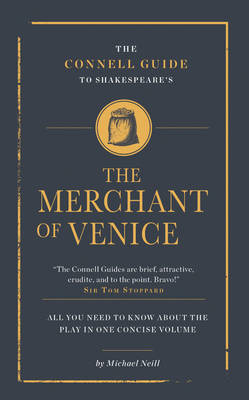
Door een staking bij bpost kan je online bestelling op dit moment iets langer onderweg zijn dan voorzien. Dringend iets nodig? Onze winkels ontvangen jou met open armen!
- Afhalen na 1 uur in een winkel met voorraad
- Gratis thuislevering in België vanaf € 30
- Ruim aanbod met 7 miljoen producten
Door een staking bij bpost kan je online bestelling op dit moment iets langer onderweg zijn dan voorzien. Dringend iets nodig? Onze winkels ontvangen jou met open armen!
- Afhalen na 1 uur in een winkel met voorraad
- Gratis thuislevering in België vanaf € 30
- Ruim aanbod met 7 miljoen producten
Zoeken
€ 15,45
+ 30 punten
Omschrijving
Its only rival in this respect is Othello, and this is because both plays deal with dangerous issues of race. In Othello, Iago uses the protagonist's colour both to goad his victim's jealousy and to excite the animosity of Venetians against this visible outsider; in The Merchant, Shylock's Jewishness renders him, from the beginning, the object of general opprobrium in Christian Venice. But whereas the Moor is treated as a generally sympathetic character, the Jew appears to be cast in an entirely negative light. Or so, at least, many critics believe. In this book, however, one of the best respected critics of Shakespeare, Michael Neill, takes issue with this simplistic view, providing a fresh reading of the play and arguing that in it, as always, Shakespeare refuses to allow us the comfort of any single "view of the world."
Specificaties
Betrokkenen
- Auteur(s):
- Uitgeverij:
Inhoud
- Aantal bladzijden:
- 130
- Taal:
- Engels
- Reeks:
Eigenschappen
- Productcode (EAN):
- 9781907776212
- Verschijningsdatum:
- 13/10/2020
- Uitvoering:
- Paperback
- Formaat:
- Trade paperback (VS)
- Afmetingen:
- 109 mm x 175 mm
- Gewicht:
- 140 g

Alleen bij Standaard Boekhandel
+ 30 punten op je klantenkaart van Standaard Boekhandel
Beoordelingen
We publiceren alleen reviews die voldoen aan de voorwaarden voor reviews. Bekijk onze voorwaarden voor reviews.











